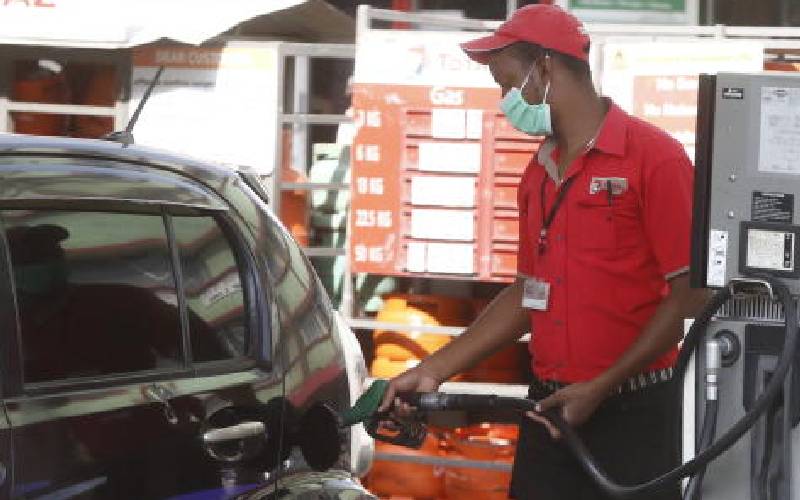×
The Standard e-Paper
Home To Bold Columnists

A petrol station attendant at Total Petrol Station in Nakuru fuels a car on July 15, 2020. [Kipsang Joseph,Standard]
Kenya’s petroleum import bill sunk to its lowest in nearly two decades in May this year, following the crash in crude oil prices in March that sent prices tumbling to historic lows.